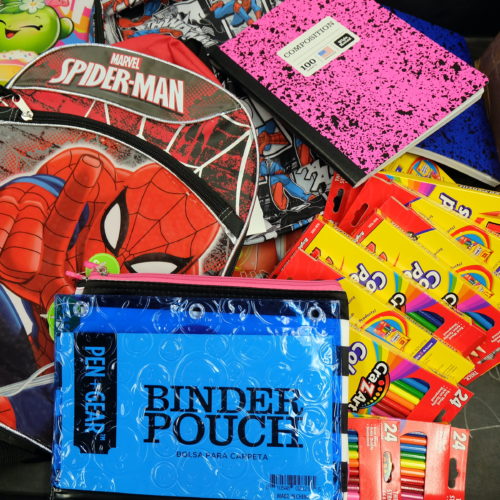As a part of our “Virtual Tour” of our Floyd County, Kentucky affiliated sites, our Director of U.S. Programs, Renée Kube, tells us about her “visit” to John Stumbo Elementary School.
“This is a small school in the community of Grethel, which is in a very rural area about 20 miles south-southeast of the county seat, Prestonsburg. The community is on Kentucky Route 979, and besides the school, there is a small post office and a Dollar General store.”
Angie told me that the parents our sponsored children are incredibly grateful for the help given by the sponsors.
“John Stumbo serves 344 students in grades Pre-Kindergarten through 8th. About 84% of the children come from low-income families. The children struggle academically too. Test scores are below the state average, with science at 22% and social studies at 39%.”
Working hard to help kids and families in need
“Our Volunteer Coordinator is Angie. She works tirelessly at the Family Resource Youth Services Center to help the children and their families. When the pandemic started, Angie was very worried about how she would be able to shop properly for the students. In the early days, there were limits on the number of items she could buy per shopping trip. Many stores had low inventories, and so things ranging from hand sanitizer to Lysol wipes were limited.”
“She was also concerned about getting correspondence from their children for their sponsors since the children were at home instead of in the school, and many didn’t have internet or phones for her to check in on them. She was gradually able to work out the kinks, and she began feeling some confidence. She was able to make a big shopping trip at the end of April 2020, and she made home deliveries to every single Children Incorporated sponsored child. Once the 2020-2021 school year began, the shortages eased up, and Angie was able to make plans and to shop without any difficulties.”
“But, unfortunately, she had other challenges. Floyd County had a couple of surges of the COVID-19 virus, driven by variants. She talked with many worried parents and grandparents, especially those who are medically vulnerable. One of her students lost her custodial grandmother due to COVID-19, which was heartbreaking.”
Yearning to get back to normal
“Angie commented that when the current 2021-2022 school year began, she detected a high level of ‘COVID fatigue’ among students and their caretakers. The kids especially yearned to get back to normal, and she empathized with them – she wanted them to be able to have less to worry about and just focus on learning and getting to see their friends and feel a little closer to normal.”
“At the end of our virtual meeting, Angie told me that the parents our sponsored children are incredibly grateful for the help given by the sponsors. With inflation hitting the gas stations and grocery stores, parents’ very limited budgets are being squeezed almost to the breaking point. Our sponsors’ support with the children’s school clothes, classroom supplies, and hygiene items is deeply appreciated.”
***
How do I sponsor a child in Kentucky?
You can sponsor a child in Kentucky in one of three ways: call our office at 1-800-538-5381 and speak with one of our staff members; email us at sponsorship@children-inc.org; or go online to our sponsorship portal, create an account, and search for a child in Kentucky that is available for sponsorship.

